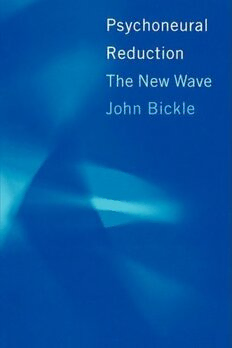
Psychoneural Reduction: The New Wave (Bradford Books) PDF
253 Pages·1998·10.631 MB·English
Most books are stored in the elastic cloud where traffic is expensive. For this reason, we have a limit on daily download.
Preview Psychoneural Reduction: The New Wave (Bradford Books)
Description:
One of the central problems in the philosophy of psychology is an updated version of the old mind-body problem: how levels of theories in the behavioral and brain sciences relate to one another. Many contemporary philosophers of mind believe that cognitive-psychological theories are not reducible to neurological theories. However, this antireductionism has not spawned a revival of dualism. Instead, most nonreductive physicalists prefer the idea of a one-way dependence of the mental on the physical.In Psychoneural Reduction, John Bickle presents a new type of reductionism, one that is stronger than one-way dependency yet sidesteps the arguments that sank classical reductionism. Although he makes some concessions to classical antireductionism, he argues for a relationship between psychology and neurobiology that shares some of the key aims, features, and consequences of classical reductionism. Parts of Bickle's "new wave" reductionism have emerged piecemeal over the past two decades; this is his first comprehensive statement and defense of it to appear.
See more
The list of books you might like
Most books are stored in the elastic cloud where traffic is expensive. For this reason, we have a limit on daily download.
